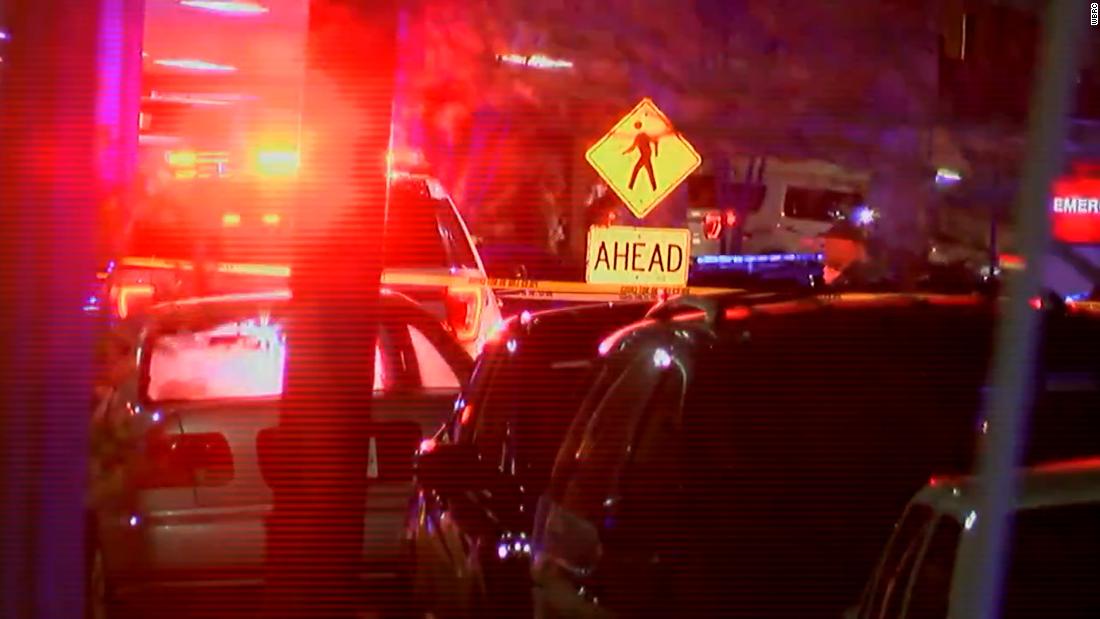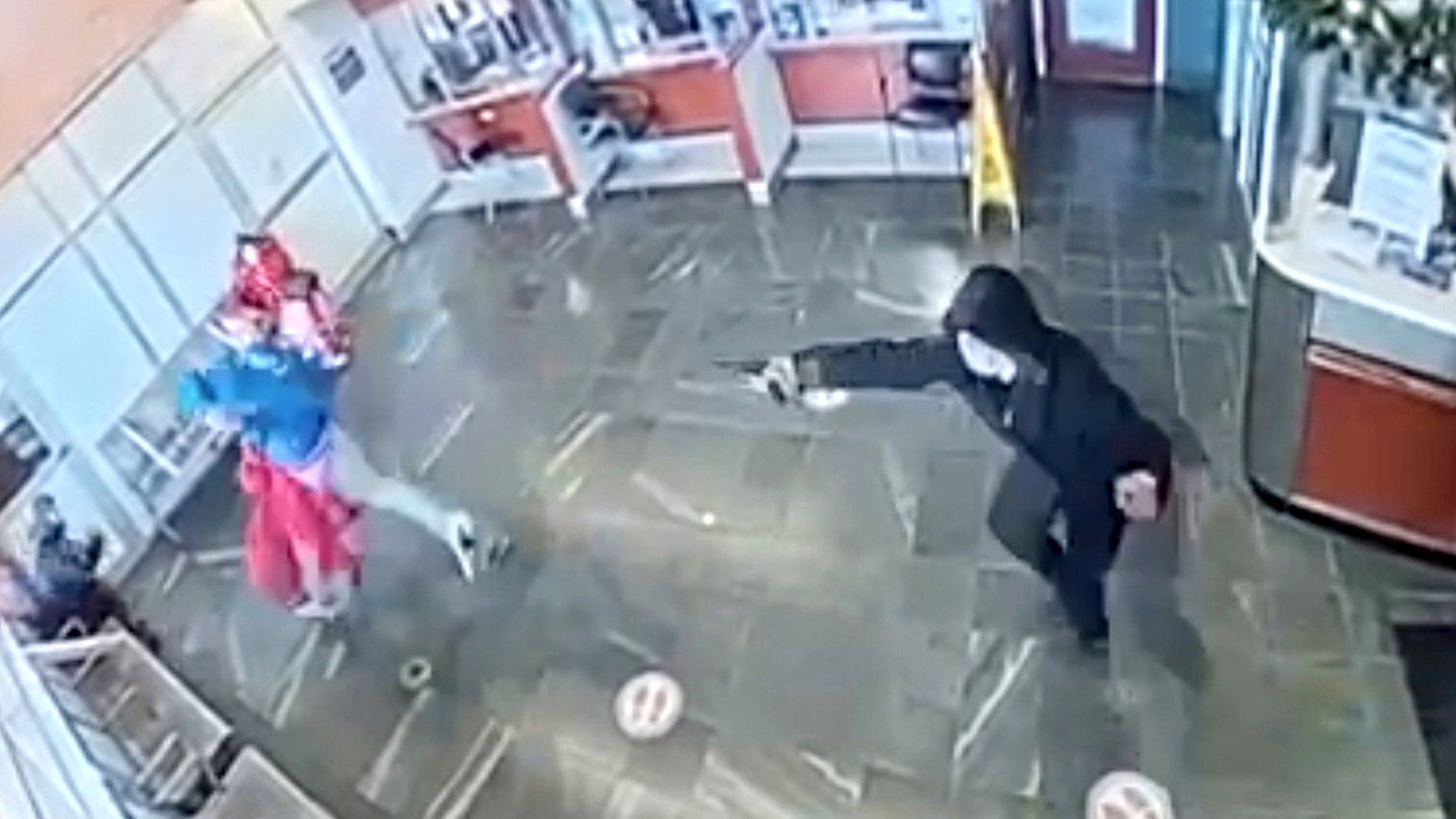Imagine this: You walk into a hospital, a place meant for healing and comfort, only to be met with the sound of gunshots. It’s a nightmare no one wants to live through, yet it’s becoming a harsh reality in today’s world. Hospital shootings have become a growing concern, not just for healthcare workers but for everyone who steps foot into these institutions. It’s time we dive deep into the issue, understand its root causes, and find ways to prevent such tragedies from occurring.
Hospital shootings are not just random acts of violence; they’re often a reflection of deeper societal issues. From mental health crises to systemic failures, the factors contributing to these incidents are complex. But don’t worry—we’re here to break it down for you in a way that’s easy to digest yet packed with valuable insights.
In this article, we’ll explore the alarming rise of hospital shootings, their impact on both patients and staff, and what we can do to make our healthcare facilities safer. So grab a coffee, sit back, and let’s dive into the world of hospital security and the urgent need for change.
Read also:Nowruz 2025 Celebrating The Dawn Of Spring And Renewal
What Exactly Are Hospital Shootings?
Hospital shootings refer to incidents where firearms are discharged within healthcare facilities, resulting in injury or death. These events are terrifying, not only because they occur in places meant for healing but also because they often involve innocent bystanders—patients, visitors, and medical professionals. The term "hospital shooting" has become more common in recent years, signaling a worrying trend that demands our attention.
According to a report by the American Journal of Public Health, there were over 150 hospital-based shootings between 2000 and 2011 alone. That’s a staggering number, and it doesn’t include the countless near-misses or threats that go unreported. The reality is, these incidents are more frequent than we think, and they’re affecting people from all walks of life.
Why Are Hospital Shootings Happening?
Now, let’s talk about the "why." Why are hospitals, which are supposed to be safe zones, turning into battlegrounds? The reasons are multifaceted, but here are some key factors:
- Mental Health Issues: Many perpetrators of hospital shootings struggle with untreated mental illnesses, which can lead to violent behavior.
- Access to Firearms: The ease with which guns can be obtained in certain regions plays a significant role in these incidents.
- Workplace Stress: Healthcare workers often face high levels of stress and burnout, which can sometimes escalate into violent confrontations.
- Personal Vengeance: Some shootings are motivated by personal grudges against specific individuals or institutions.
It’s important to note that these factors don’t exist in isolation. They often intersect, creating a perfect storm of circumstances that lead to tragedy. But understanding them is the first step toward prevention.
Who Are the Victims of Hospital Shootings?
When we talk about hospital shootings, it’s crucial to understand who’s being affected. The victims aren’t just limited to patients; they extend to everyone within the facility:
- Patients: Individuals seeking medical care are often caught in the crossfire, making their visits to the hospital a life-threatening experience.
- Doctors and Nurses: Healthcare professionals are increasingly becoming targets of violence, both from patients and external threats.
- Visitors: Family members and friends visiting loved ones in the hospital are also at risk, turning what should be a comforting visit into a nightmare.
These incidents have a profound impact on the mental health of survivors, leading to trauma, anxiety, and even PTSD. It’s not just about physical harm—it’s about the lasting emotional scars that linger long after the event.
Read also:How Will Brandin Podziemskirsquos Return Affect Warriorsrsquo Rotation
How Do Hospital Shootings Affect Communities?
Hospital shootings don’t just affect those directly involved; they ripple outward, impacting entire communities. Here’s how:
1. Fear and Distrust
When people hear about hospital shootings, it creates a sense of fear and distrust toward healthcare facilities. This can discourage individuals from seeking medical care, leading to untreated conditions and worsening health outcomes.
2. Economic Impact
Hospitals are often major employers in their communities. When shootings occur, it can lead to reduced patient visits, decreased revenue, and even job losses for healthcare workers.
3. Public Health Concerns
The presence of guns in hospitals raises serious public health concerns. It shifts the focus from healing to security, which can hinder the primary mission of healthcare providers.
What Are Hospitals Doing to Prevent Shootings?
Hospitals are stepping up their game when it comes to security. Here are some of the measures being implemented:
- Increased Security Personnel: More guards and metal detectors are being installed to screen visitors and staff.
- Surveillance Systems: Advanced camera systems are helping monitor suspicious activities in real-time.
- Training Programs: Staff are being trained in de-escalation techniques and emergency response protocols.
- Collaboration with Law Enforcement: Hospitals are working closely with local police departments to enhance security measures.
While these steps are commendable, there’s still a long way to go. Hospitals need to strike a balance between security and maintaining a welcoming environment for patients and visitors.
What Can We Do to Prevent Hospital Shootings?
Prevention is key, and it starts with a collective effort from all stakeholders. Here’s what we can do:
1. Address Mental Health Needs
Providing accessible mental health services can help identify and treat individuals at risk of committing violent acts before they escalate.
2. Strengthen Gun Control Laws
Implementing stricter regulations on firearm ownership can reduce the likelihood of guns ending up in the wrong hands.
3. Foster a Culture of Respect
Encouraging open communication and respect within healthcare settings can help prevent conflicts from turning violent.
The Role of Technology in Hospital Security
Technology is playing a crucial role in enhancing hospital security. From AI-driven surveillance systems to biometric access controls, these innovations are helping create safer environments. For instance, facial recognition software can quickly identify potential threats, while drones can patrol parking lots and surrounding areas.
However, it’s important to ensure that these technologies are used ethically and don’t infringe on individual privacy rights. Striking this balance is essential for maintaining public trust.
Data and Statistics: The Numbers Behind Hospital Shootings
Let’s take a look at some alarming statistics:
- Between 2000 and 2021, there were over 200 reported hospital shootings in the U.S. alone.
- Approximately 70% of these incidents occurred in urban areas, highlighting the need for targeted interventions.
- Studies show that hospitals with higher security measures experience fewer violent incidents compared to those with minimal protection.
These numbers paint a clear picture: hospital shootings are a growing concern that requires immediate attention and action.
Case Studies: Real-Life Examples of Hospital Shootings
Let’s examine a couple of real-life cases to better understand the impact of hospital shootings:
Case 1: The Johns Hopkins Hospital Incident
In 2010, a man entered Johns Hopkins Hospital with a gun, intending to harm a doctor who had previously treated his mother. Tragically, he shot and killed his mother, wounded the doctor, and later took his own life. This incident highlighted the need for improved security measures and better communication between patients and healthcare providers.
Case 2: The Aurora Medical Center Shooting
In 2019, a disgruntled former employee of Aurora Medical Center in Wisconsin opened fire, killing three people before being apprehended by police. This case underscored the importance of workplace conflict resolution and employee mental health support.
Conclusion: Taking Action for a Safer Future
Hospital shootings are a complex issue that requires a multifaceted approach to solve. By addressing the root causes, implementing effective security measures, and fostering a culture of respect and understanding, we can create safer healthcare environments for everyone.
So, what can you do? Start by advocating for stronger gun control laws, supporting mental health initiatives, and staying informed about the latest developments in hospital security. Together, we can make a difference and ensure that hospitals remain places of healing, not fear.
Don’t forget to share this article with your friends and family. Knowledge is power, and the more people we reach, the closer we get to a safer future. Let’s work together to end hospital shootings once and for all.
Table of Contents
- What Exactly Are Hospital Shootings?
- Why Are Hospital Shootings Happening?
- Who Are the Victims of Hospital Shootings?
- How Do Hospital Shootings Affect Communities?
- What Are Hospitals Doing to Prevent Shootings?
- What Can We Do to Prevent Hospital Shootings?
- The Role of Technology in Hospital Security
- Data and Statistics: The Numbers Behind Hospital Shootings
- Case Studies: Real-Life Examples of Hospital Shootings
- Conclusion: Taking Action for a Safer Future


